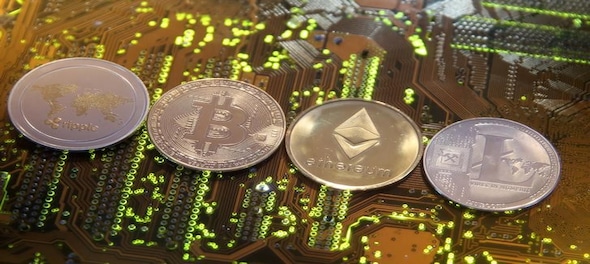
The crypto industry has been focussing hard on making the business more environment friendly. This has reportedly led to a bump-up in the crypto carbon offsets markets, drawing investments from investors like billionaire Mark Cuban. Over 17 million carbon credits worth more than $100 million are currently tied to tokens called BCT and traded on unregulated markets, according to a report by The Wall Street Journal.
Carbon offsetting involves engaging in activities that restore the planet’s green cover to reduce the atmospheric carbon content. Private organisations and not-for-profit institutions develop projects that measure carbon reduction and issue an equivalent amount of carbon credits. For example, a company can pledge to go carbon-neutral by buying credits from another company that has caused less pollution in a particular year. Each credit represents one tonne of carbon emission reduced.
“Offsetting essentially means for every ton we remove, we emit a ton somewhere else,” Kate Dooley, a research fellow at the University of Melbourne who studies the impact of carbon accounting, told Coindesk in an interview.
A survey by Ecosystem Marketplace in October last year suggested the voluntary carbon offset market was set to cross $1 billion for the first time with all-time market value of $6.7 billion.
Crypto proponents expect carbon offsets to bring greater transparency in the process as current industry standards are unclear, and the absence of oversight makes it difficult to gauge the performance.
When companies aim to compensate for the emissions they generate, they buy these credits that obligate them to participate in carbon reduction projects. Depending on the carbon-removal efficiency and level of activity, carbon credits get traded on the informal market at varying prices.
The crypto industry has been facing backlash from environmentalists for the climate impact of the power-intensive crypto mining operations. After China’s crackdown on crypto mining and trading activities, most Bitcoin miners were compelled to move base to other countries. A large chunk relocated to Kazakhstan, which is itself majorly powered by fossil fuels but offers cheaper electricity. This effectively translates into crypto mining at higher emission rates at a time when the world is moving to green energy initiatives.
What are the crypto tokens currently tied to carbon credits?
Toucan, launched in October 2021, is a participant of the crypto carbon offset market. It is a decentralised finance (DeFi) project that allows users to purchase carbon credits and have them linked with a digital token called BCT – Base Carbon Tonne, which can then be traded on crypto exchanges. The BCT token is currently trading at $5.97, per data from Coingecko. This makes the total carbon credits worth $101.83 million at the time of writing. The token has achieved a market capitalisation of $41.3 million.
Linking with a digital token does not compromise the nature of or the ongoing activities of carbon reduction projects. According to Toucan, opening the carbon offsetting market to crypto trading can improve transparency by giving users access to price points that are publicly visible on crypto exchange websites.
“The world’s rapidly scaling voluntary carbon markets need to be run on a transparent, digital and neutral system in order to maximise their impact,” James Farrell, CTO at Toucan Labs told WSJ.
However, companies partaking in carbon offsetting do not comprise the major clientele of Toucan. Another crypto token called Klima, which was launched independently yet on the same day as BCT, is currently driving the trading of carbon credits on crypto exchanges. KlimaDAO, the developer of the Klima token, allows investors to purchase their native token using BCT. The Klima token is trading at $148.8 with a market capitalisation of $49.55 million.
Skeptics told the WSJ that Klima could potentially reduce transparency in carbon markets. But it has drawn investment from Dallas Mavericks owner Mark Cuban. While Cuban said he owns Klima tokens, he did not share any other details, the WSJ report said.
"While the anonymity wasn't optimal and it's a bit of a learning experience, if it works, the environmental impact could be consequential," Cuban told WSJ.
The task force on Scaling Voluntary Carbon Markets explained to WSJ that increased participation of companies in trading carbon credits can be achieved by deploying blockchain technology to ensure publicly accessible records. More offsetting can achieve a greater carbon reduction and is, therefore, the area of focus.
(Edited by : Aditi Gautam)
Check out our in-depth Market Coverage, Business News & get real-time Stock Market Updates on CNBC-TV18. Also, Watch our channels CNBC-TV18, CNBC Awaaz and CNBC Bajar Live on-the-go!


Delhi voters can avail free rides from booths to their homes on polling day
May 10, 2024 6:26 PM
Kolkata North: TMC fights 'TMC' in battle reflecting party's Old vs New debate
May 10, 2024 5:14 PM

